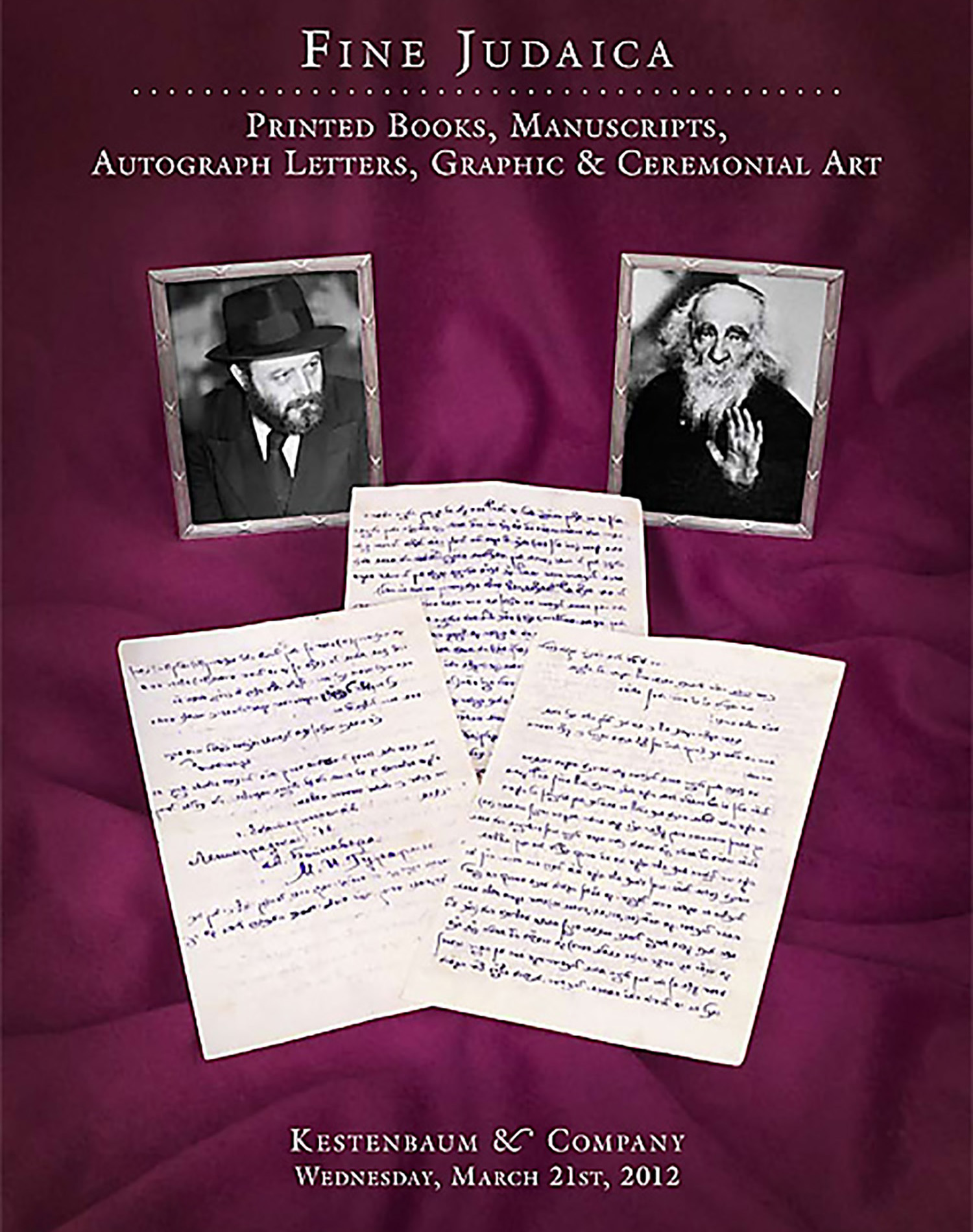Luach shel Shenath 5656.

AUCTION 54 |
Wednesday, March 21st,
2012 at 1:00
Fine Judaica: Printed Books, Manuscripts Autograph Letters, Graphic & Ceremonial Art
Lot 47
(ANGLO-JUDAICA).
Luach shel Shenath 5656.
London: Alexander 1795
Est: $3,000 - $4,000
The earliest Hebrew press in England conducted by and for Jews was set up in 1770 by the British-born Alexander b. Judah Alexander. It continued to operate into the 19th century, becoming famous for its Hebrew-Yiddish almanacs, first issued in 1772 and still going strong in 1810. For all the longevity and popularity of the Alexander pocket calendars, few examples survive; a search conducted more than 100 years ago concluded that “the British Museum does not appear to possess any specimen.”
The front section of the present Luach with rubrics in Yiddish, footnotes in Hebrew, and charmingly printed signs of the zodiac, identifies and comments sporadically on the Sabbaths and major and minor feasts and fasts of the Jewish year. In addition, it provides the corresponding solar date, identifying red-letter days in the Anglican calendar as well. Thus, Wednesday 23 Sivan, is “Taanith Tsadikim,” but, also, “Peter and Paul,” Dates of legal consequence--end of term, for example, or quarter day--are noted, too. Most striking of all, though, is the emphasis on royal anniversaries. 20 Shevath is Shabbath Yithro but also Melech Karolus--the anniversary of the execution in 1649 of King Charles the Martyr; 21 Iyyar marks the “restoreshn” of the monarchy in 1660; and of supreme importance, if point size is anything to go on, “Charlotte, Queen of Great Britain, will be 52 on 18th January.”
More cultural literacy is offered by the “Kronik” and the “London Kronik” that follow the calendar. The first of these provides a timeline of 46 major moments in Jewish history, from the Creation 5556 years ago, via the birth of Moses, the compilation of the Talmud, and the expulsion from Spain, down to the establishment of “the new press here in London”--the Alexander press--just 26 years ago. The briefer London timeline only begins with the Gunpowder Plot of 1605, but is essentially, obsessed with royal dates of birth--without, however, forgetting the Jacobites and their “rebelion in di Nort” fifty years ago.
That the readers for whom all this patriotic, Anglicizing information was intended were the army of Jewish peddlers who fanned out continuously from the metropolis across the country, or who brought wares from the capital to regional peddling hubs, becomes clear from what follows: a 15-page “list of the coaches leaving London to all the places in the provinces.” The alphabetical list of 87 destinations runs from Ipswich, Oxford, Andover, Berkhampsted, Barking, and Barnet, via “Brummagem” and “Helifeks” to Romford, Shrewsbury, and Sheffield.
As one more amenity, the almanac provides a table of sunrise and sunset times, the text for the blessing of the new moon, and, finally, a full-page disclaimer in Yiddish: Sunset (hence sabbath commencement) times are according to the reckoning of the late Haham of the London Sephardim, “our lord and master Moses Cohen de Azevedo,” and the publisher takes no responsibility for the accuracy of the information.
For more on the Alexander almanacs, see M. Myers “Calendars of the Coaching Days” in TJHSE, Vol. V (1908).
